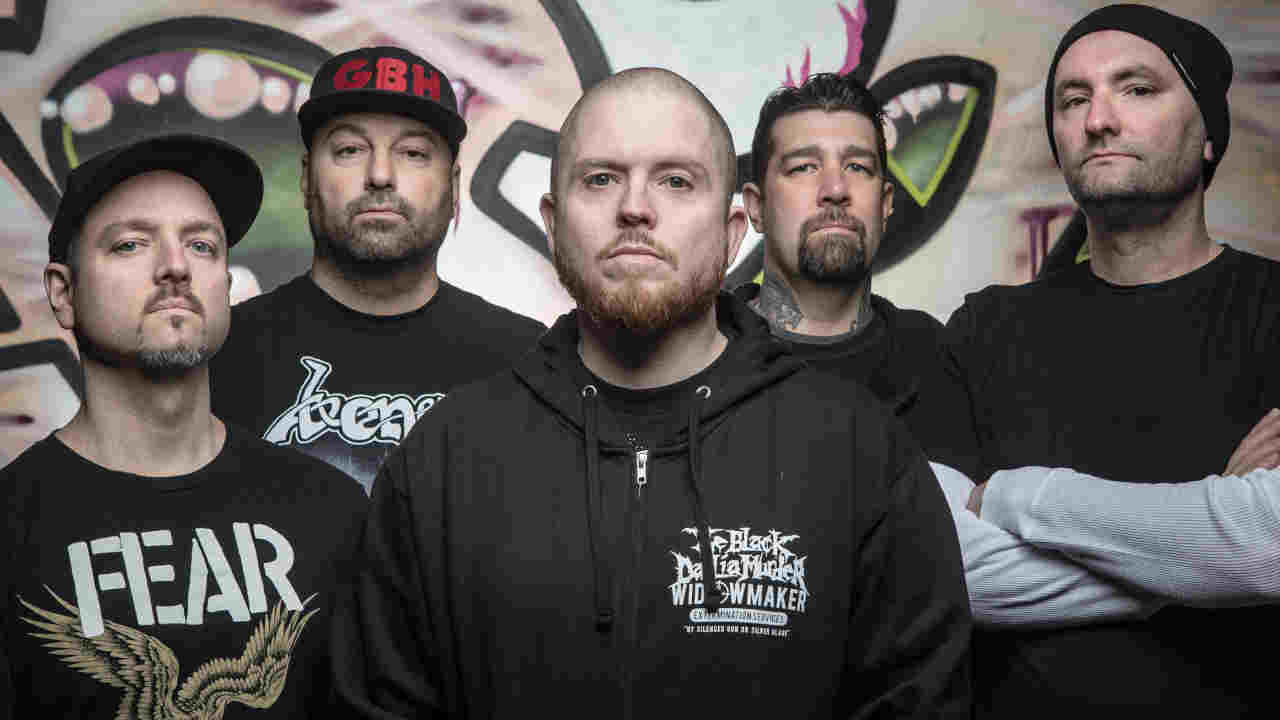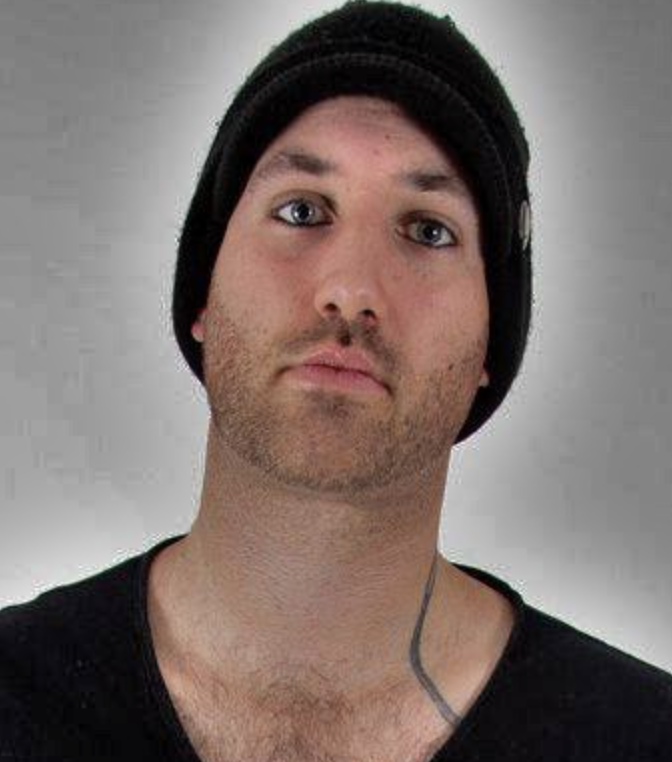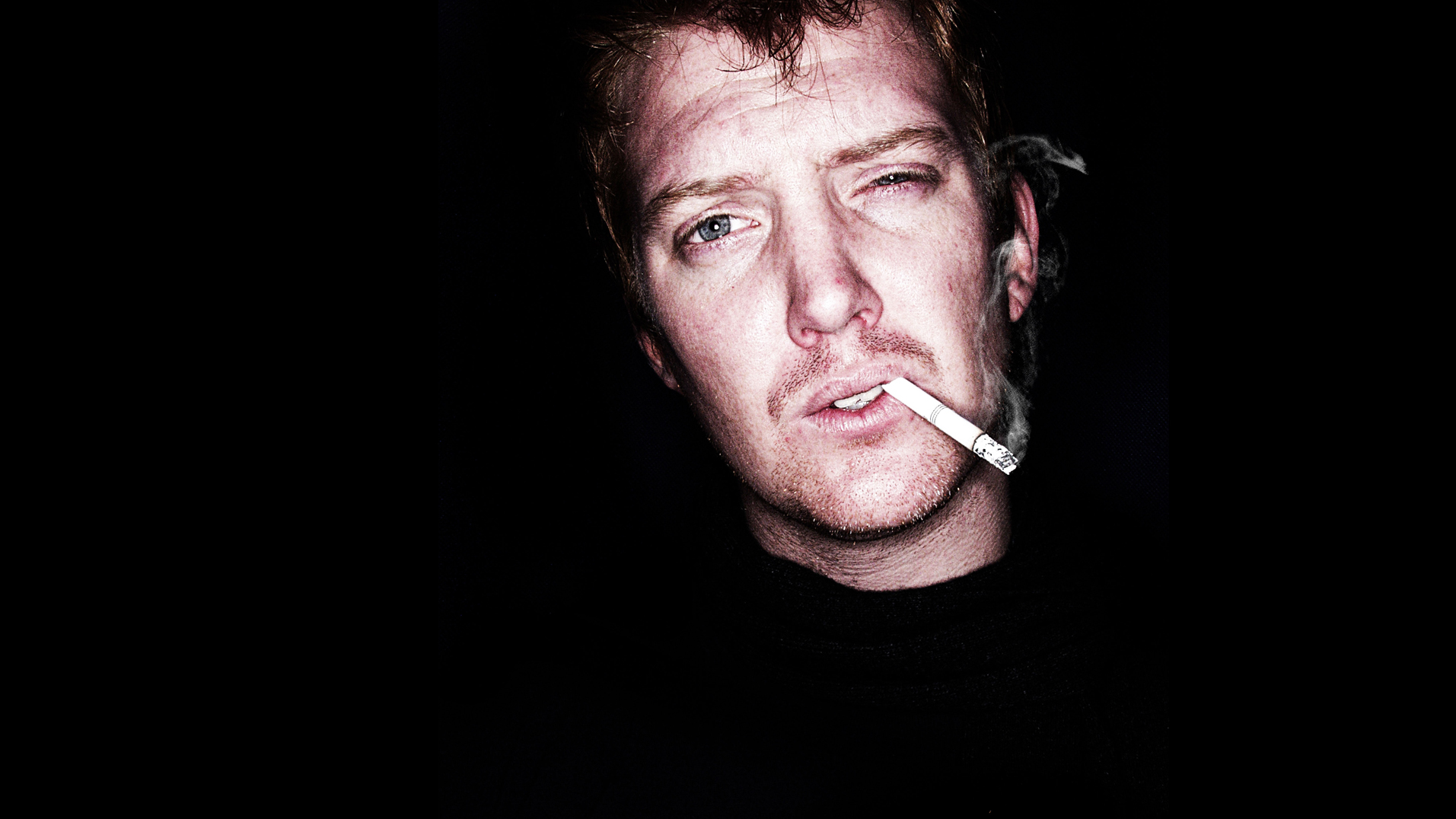Hatebreed’s Jamey Jasta: “My whole career is about raising heavy music’s profile”
Jamey Jasta has spent nearly 30 years manning the barricades in music. Here’s what he’s learned

Select the newsletters you’d like to receive. Then, add your email to sign up.
You are now subscribed
Your newsletter sign-up was successful
Want to add more newsletters?

Every Friday
Louder
Louder’s weekly newsletter is jam-packed with the team’s personal highlights from the last seven days, including features, breaking news, reviews and tons of juicy exclusives from the world of alternative music.

Every Friday
Classic Rock
The Classic Rock newsletter is an essential read for the discerning rock fan. Every week we bring you the news, reviews and the very best features and interviews from our extensive archive. Written by rock fans for rock fans.

Every Friday
Metal Hammer
For the last four decades Metal Hammer has been the world’s greatest metal magazine. Created by metalheads for metalheads, ‘Hammer takes you behind the scenes, closer to the action, and nearer to the bands that you love the most.

Every Friday
Prog
The Prog newsletter brings you the very best of Prog Magazine and our website, every Friday. We'll deliver you the very latest news from the Prog universe, informative features and archive material from Prog’s impressive vault.
Even before he became the leader of Hatebreed in 1994, Jamey Jasta lived and breathed all things heavy music. His band were almost single-handedly responsible for putting hardcore on the mainstream map, popularising an early strand of metalcore that the likes of Killswitch Engage went on to exploit even further. If that was the end of his achievements it would be enough to cement his status as a legend, but he’s gone on to host a rebooted Headbangers Ball and his own podcast, run his own label and just generally be known for being one of metal’s most inspirational figures. Here’s what he’s learnt from it all.

Discovering music is the most magical time of your life
“Growing up, my parents always had the record player out. Music wasn’t a huge part of their life, but anyone that grew up in the 80s will tell you what a special time that was. We had the dawn of MTV and so many different radio stations and college radio stations, which were so cool because they would play all these eclectic varieties of music: punk, ska, hardcore, death metal, thrash. Although I was too young to go to shows in the late 80s, I developed this deep love of punk and metal between the ages of about nine and 13, and that’s such an important part of your lifespan. I got Guns N’ Roses, Cro-Mags, Metallica, Run DMC… I remember I got the tape I Can’t Live Without My Radio by LL Cool J and I really felt that. What would I do without those songs?! I got so many records in that time.”

Always be happy to see young people getting into music
“I’ve seen a lot of resistance over the years from the old guard about what should and shouldn’t be heavy music. If you remember when the deathcore thing all kicked off on MySpace, for example, you had all these old death metal guys going ‘What is this shit? Why are they dressing like that? Why is their hair so short?’ and I really just felt like I had to say to them, ‘Listen, they’re the same as us. They are looking to listen to heavy shit, just like me and you. Would you rather they went and listened to some DJ instead?’ It’s good to include people and make them feel welcome. I always hope to do that with our music and my projects.”
Mixed bills break down genre boundaries
“When I became a promoter, putting on local hardcore shows, I made a point of trying to break some of the boundaries down and invite more thrash bands and more metal bands down to play. When the shows went OK and there were no fights, you would go out into the parking lot and see those people mingling and drinking a beer together; one guy wearing his Nike High Tops and Youth Of Today shirt and another guy with the long hair and the Anthrax t-shirt. And they became friends! It was really cool to see that happening.”
I always strive to elevate the profile of metal
“I never took the tweets I made about Chvches down, and what I noticed is that I started to sell a hell of a lot more Jasta merch after that happened. So, I guess that old ‘all press is good press’ thing is true, right?! But I have no regrets about that incident. I know that a lot of their fans came out to bat for them, and I think that’s totally understandable. I was just going to bat for one of my favourite bands, Gojira, in the first place. I mean, Gojira would blow most bands off the stage, not just Chvrches! My point was that there needs to be more of the Hulk Hogan and Ultimate Warrior attitude, you know [Warrior beat Hulk Hogan, 80s wrestling’s biggest star, at Wrestlemania VI]? Let’s put someone over! I want to see the legacy bands give metal the main support slot, like Hogan did with Warrior, because, whether you like me or you like Gojira, our bands, and Lamb Of God and Five Finger Death Punch, are all moving up into that Deftones, Korn, Judas Priest slot! We’re not getting radio, so what is our opportunity to have that chance? Festival plays and touring. I didn’t want to put down another band, but my whole career is about raising the profile of heavy music.”
Major labels just don’t know what to do with hardcore… good!
“I saw the resistance from the labels and the industry about hardcore. I remember the glam and grunge, and even ska boom, I remember tiny little ska bands being nabbed by a major label because they wanted the ‘next Bosstones’, but that never really happened to hardcore. We were a bit of an island for hardcore on a major, and it really wasn’t until the New Wave Of American Heavy Metal where a lot of those bands started to give us our dues. I think that was a good thing for us, because I didn’t feel comfortable doing photoshoots or being on TV at first, so hardcore being a more underground genre meant that we could kind of keep our heads down and do our own thing without being tied to too much hype.”
Fans decide what is popular in metal, not labels
“Getting a major label deal was preparation meeting luck. When so many labels and so many record companies that you think are smart people are passing on you for so long…as your profile rises you just start to think, ‘Why wouldn’t you want to align yourself with this? If you are just about the widgets, these people all want the physical product!’ You realise that they’re wrong. I had run a label and a record shop, so I had seen every trend come and go; I remember when Papa Roach weren’t even signed and every day kids were coming in asking for their album, just from tape trading and the early stages of Napster. Pure word of mouth. But you realise that these A&R guys aren’t at the record store, they’re not at the show, so they don’t know! I remember seeing Clown and Paul from Slipknot in the front row of our shows singing every word in front of 30 people in Iowa, so I knew we had something, but it takes a thick skin and resilience to convince these people. These people are not smart.”
Sign up below to get the latest from Metal Hammer, plus exclusive special offers, direct to your inbox!
Nothing will ever beat a real record collection
“When people say, ‘It makes no sense to buy a vinyl, because you can get three months of a streaming service and nine million songs for the same price!’, I always say, ‘Or you are getting 8,999,990 songs you don’t want?’ So, it depends how you look at it; my music collection is one of my proudest possessions and it’s there forever – you miss one payment on a streaming service and ‘poof!’, it’s gone. You gotta dip in to your pocket again to get your collection back.”
If you're in a band, you need to have your business head on
“If the manager goes into the meeting and the record label guy is rolling his eyes and twiddling his thumbs, then he’s a liability. If you don’t have the right representation or you aren’t representing yourself or knowing your business then that can hurt you. I’ve seen bands that kids were so hot on, but they’ve just let some manager get on with it, and the label aren’t advocates of what they are doing and they vanish. Why do you want those people as representatives of that thing that you’ve worked so hard on? It takes judgement and strategy, and you need to treat your band as a job as well as your art.”
Rebooting Headbangers Ball was an amazing time for me
“Presenting Headbangers Ball was an amazing experience. I tried to treat the entire thing as a learning curve; finding out about editing and filming and just the art of making television. We went all over the world, meeting some incredible people, and just trying to bring metal to people. Again, it was all about the passion for elevating metal. I’m very proud to have done that.”
I have modelled myself on Scott Ian
“I looked at Scott Ian for inspiration. Say what you like about John Bush-era Anthrax, but they were still filling out clubs, and Scott was still presenting on the TV, he was still in the magazines and he was still a presence. He was ambitious, entrepreneurial, a real personality, and I wanted to take a leaf out of his book. I would see people, jealous people, say, ‘Oh, Anthrax aren’t part of the Big 4 any more, so he has to go host on VH1!’ and just think that they were unsuccessful people, so why would I care what they had to say. I saw Scott and I realised that it was a marathon, not a sprint.”
Published in Metal Hammer #343

Stephen joined the Louder team as a co-host of the Metal Hammer Podcast in late 2011, eventually becoming a regular contributor to the magazine. He has since written hundreds of articles for Metal Hammer, Classic Rock and Louder, specialising in punk, hardcore and 90s metal. He also presents the Trve. Cvlt. Pop! podcast with Gaz Jones and makes regular appearances on the Bangers And Most podcast.
